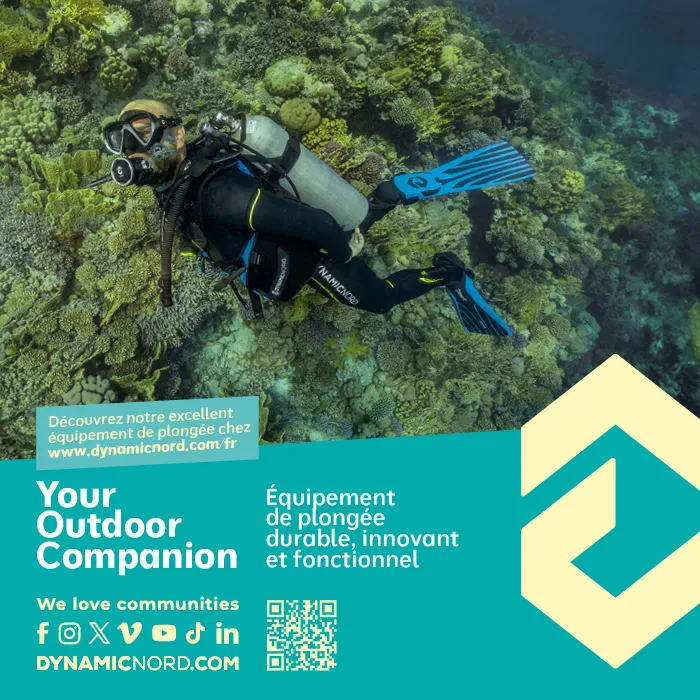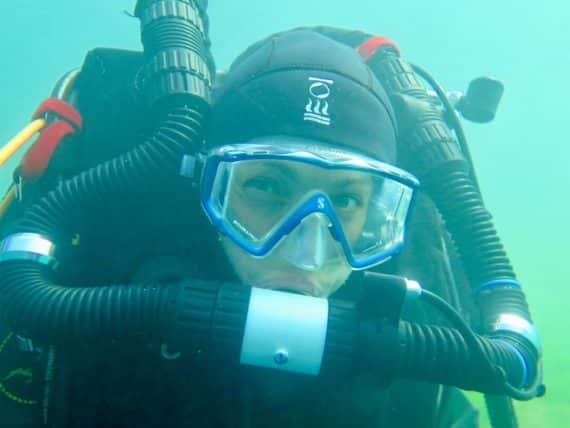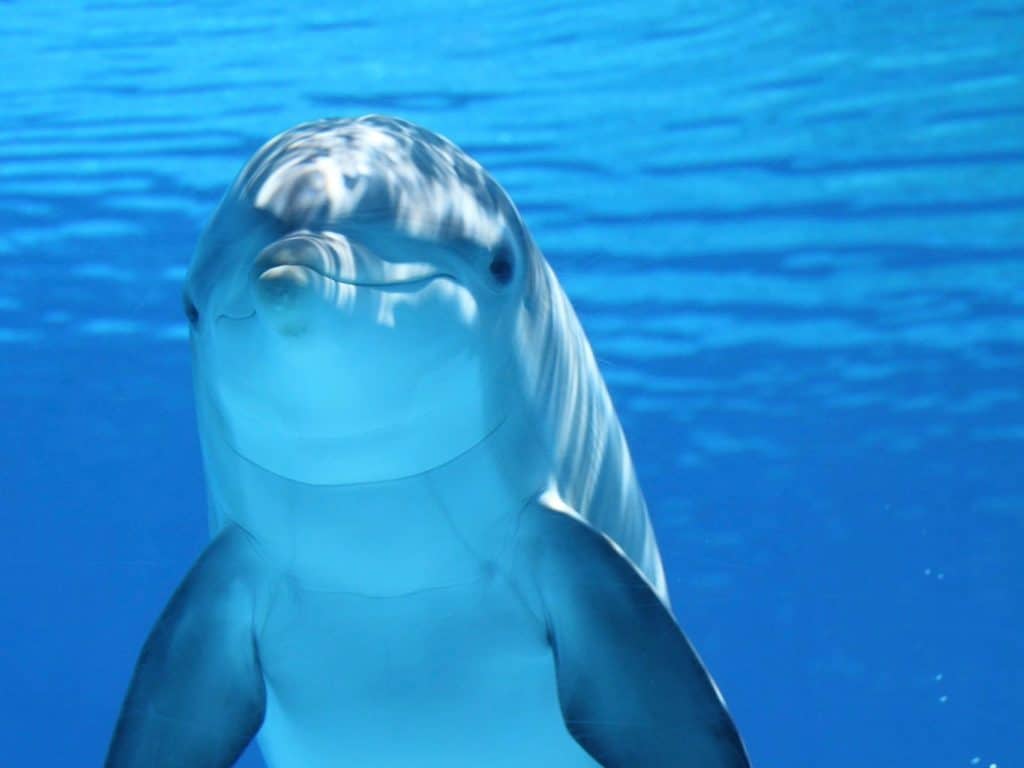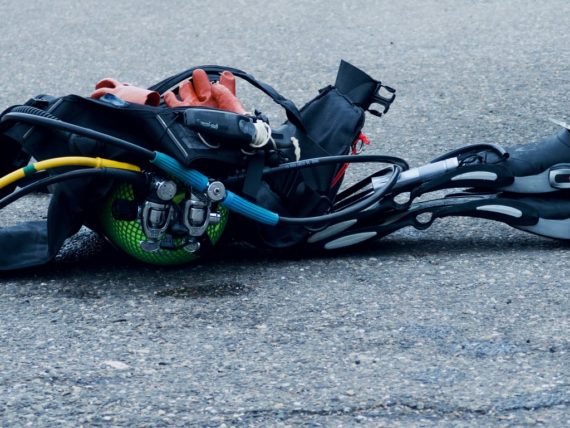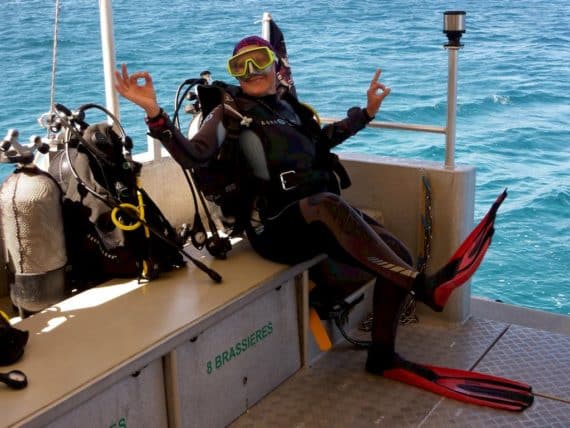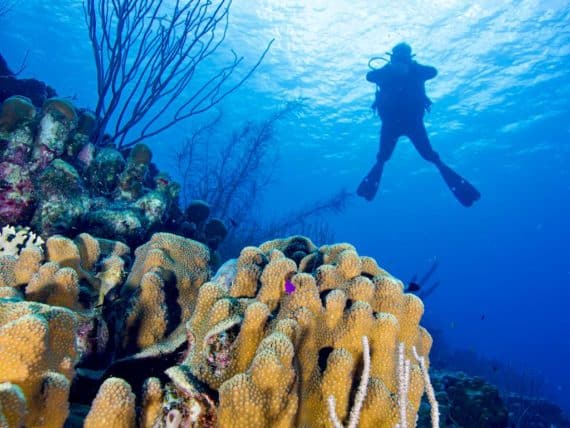Scuba diving : are we all guinea pigs, is scuba diving safe ?
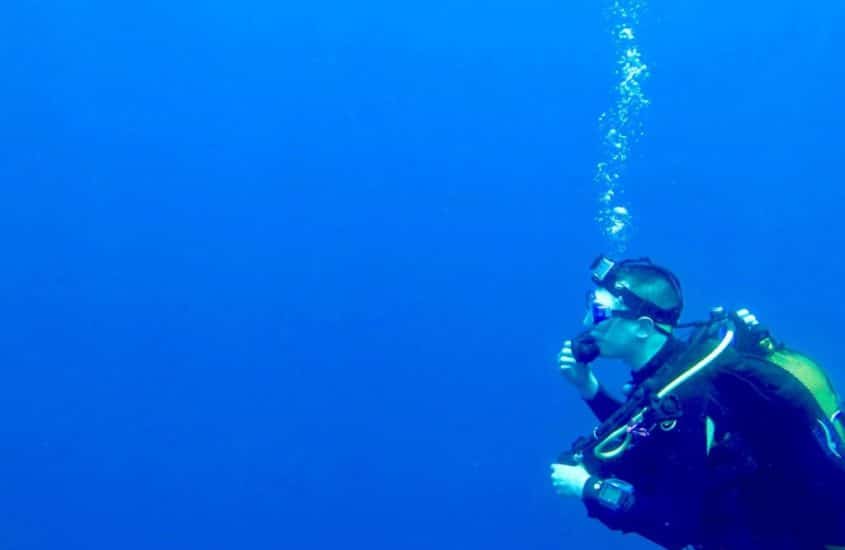
Have you ever noticed that the debates that revolve around the effects of scuba diving on the human body are rarely sliced. And the answers often hesitant ?
Recreational and sport diving is a relatively recent aquatic activity. But, is scuba diving safe ?
At the beginning diving was used for a professional purpose (fishermen, soldiers, off-shore divers, etc…). Since the 1960s and the discovery by a large public of this activity through the stories of J-Y Cousteau. Scuba diving has become increasingly more popular among every kind of public. However is scuba diving safe ?
It must be said that the marine environment is not the natural environment of human beings. Although some are so often under water that you are entitled to ask if it is not going to grow gills. Yes , yes 😉
The invention by Gagnan and Cousteau of the autonomus aqualung has made it possible since 1946. Date of its first commercialization, for many men and women to start the fabulous discovery of scuba diving.
Since then, hundreds of thousands of recreational divers have traveled the world’s waterways to discover the underwater world. And seek new diving experiences.
Is scuba diving safe ?
The whole question is there, and the answer is obviously NO.
Faced with the increase in the number of divers. The scientific world has begun to take a closer look at the effects of hyperbaric immersion on the human body.
Decompression accidents, pulmonary overpressures. Barotrauma.More and more numerous (since there are more and more divers) have been studied, better understood and solutions to avoid them have been suggested. However we are not guinea pigs, we are part of this.
Apart from the fact that research has largely been carried out on young and healthy men. It should also be noted that the results are often based either on research carried out by independent agencies such as DAN, BSAC. With their affiliates , or statistics on diving accidents … where available.
But then there is no danger anymore is scuba diving safe ?
This is obviously not so simple.
For many years now, diving is no longer restricted to the young, healthy men on which most studies have focused.
Other audiences began to discover the richness of the seabed through the practice of diving
Today scuba diving for example has widely opened to women who encounter issues that are their own as the question of whether they can dive during their menses. To my knowledge no mass study on women’s issues has been carried out. Yet we could ask questions such as. “Can hormonal changes affect the effects of nitrogen narcosis or on CO2 intoxication or on oxygen intoxication from Paul Bert effect ? “
On the other hand, more and more children practice this wonderful activity for them . Without any study having ever been carried out with this particular audience but for which many recommendations of mistakes to avoid are formulated. Is diving safe for children ?
Finally, in addition to the population of first-generation divers who continue to dive. In recent years more and more seniors are starting scuba diving activity encouraged by dive centers during their holidays. For this specific population, little or no research has been done.
Are there other problems at the bone, joint or arterial level that may appear for long-term practice of scuba diving ?
Are we all guinea pigs ?
In my opinion the answer is YES. Since we choose to evolve in a hyperbaric aquatic environment that is not our natural environment.
It is our voluntary participation in research and the problems that we encounter that will come to make the statistics of the researchers grow . And to refine the understanding of the phenomena resulting from the immersions in hyperbaric environment.
In addition, the evolution of teaching technologies and methods lead to various and diverse recommendations. They are not always well understood or precisely documented : i.e whether or not to make deep stop. Does the use of dive tables still make sense ? Do some of the deemed dangerous exercises still have to be taught ?
And here again, the debate between the current of the “old” and the “modern” rages without any simple, universal and easy to prove truth.
Should we stop diving ?
Surely not !
Because ultimately even off diving, in many economic, social but also medical fields, we are very often guinea pigs. Sometimes even without knowing it 😉
It appears that although knowledge has evolved in the world of scuba diving. Many studies will still be needed to accurately capture the effects of diving on human bodies of all ages and sexes.
In the meantime and in order to achieve diving by maximizing safety, from the moment you immerse yourself, you should just be aware that you are entering an environment that is not natural for your body
It is then useful, to continue scrupulously respecting the rules of safety and common sense, to dive conscientiously and encourage research to continue.
Be willing to listen to your body, agree to give up a dive “if you do not feel it” and leave your mind curious, open and critical to the debates without locking yourself in the prescriptions of one or the other current. Things will evolve, knowledge will enrich but probably not as fast as we would like.
May we remain divers free, curious, open to others and positive
Good bubbles and do not forget to be happy 🙂
Join my facebook page for more sharing
Helene

